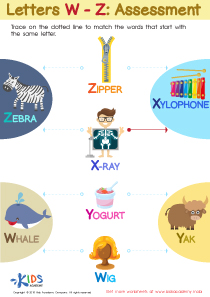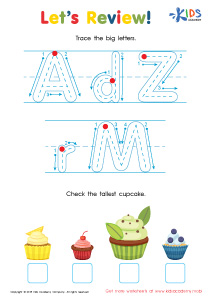Letter-sound correlation Preschool Phonics Worksheets
4 filtered results
-
From - To
Discover a fun way to boost early reading skills with our engaging Preschool Phonics Worksheets focusing on letter-sound correlation! Curated especially for preschoolers, these worksheets help kids recognize letters and their corresponding sounds, laying the foundation for successful reading. From matching activities to tracing exercises, our vibrant printable resources are designed to make learning enjoyable. Each worksheet is crafted to stimulate young minds and improve phonemic awareness, ensuring your child’s journey to literacy is exciting and effective. Perfect for both classroom and home settings. Cultivate your preschooler's love for reading and phonics with Kids Academy today!
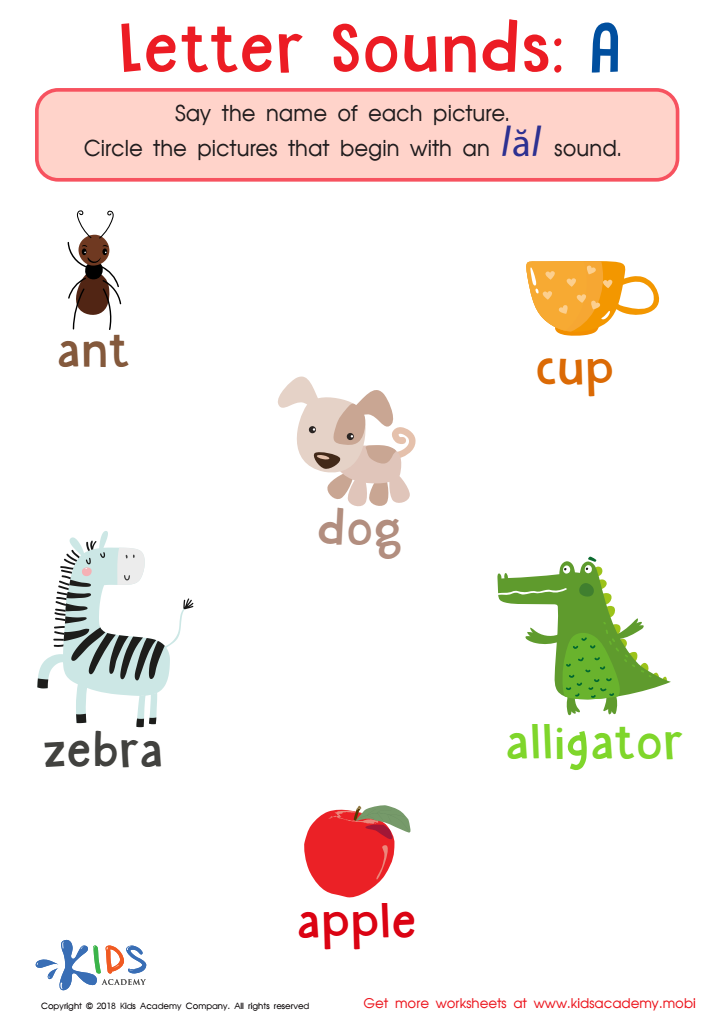

Letter A Sounds Worksheet
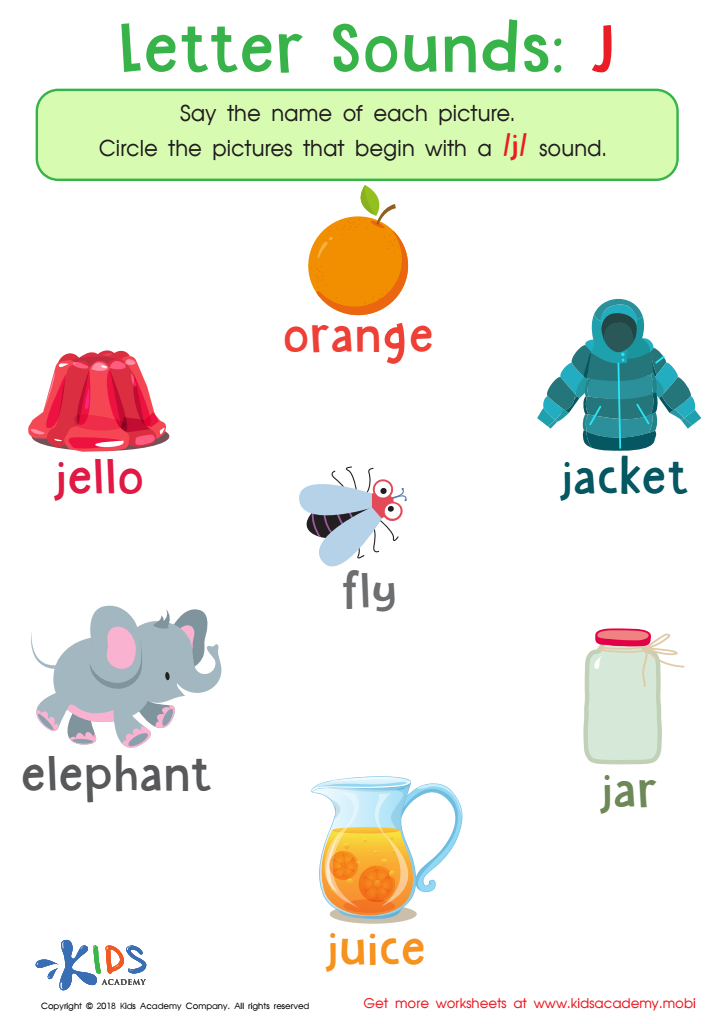

Letter Sounds: J Printable Worksheet
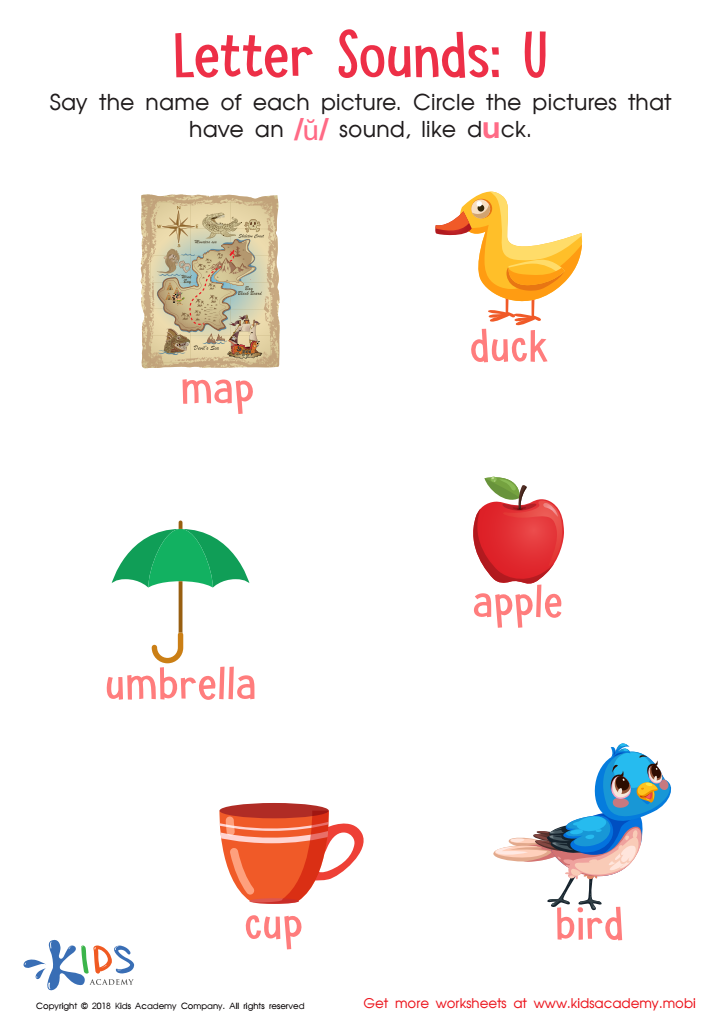

Letter U Sounds Worksheet
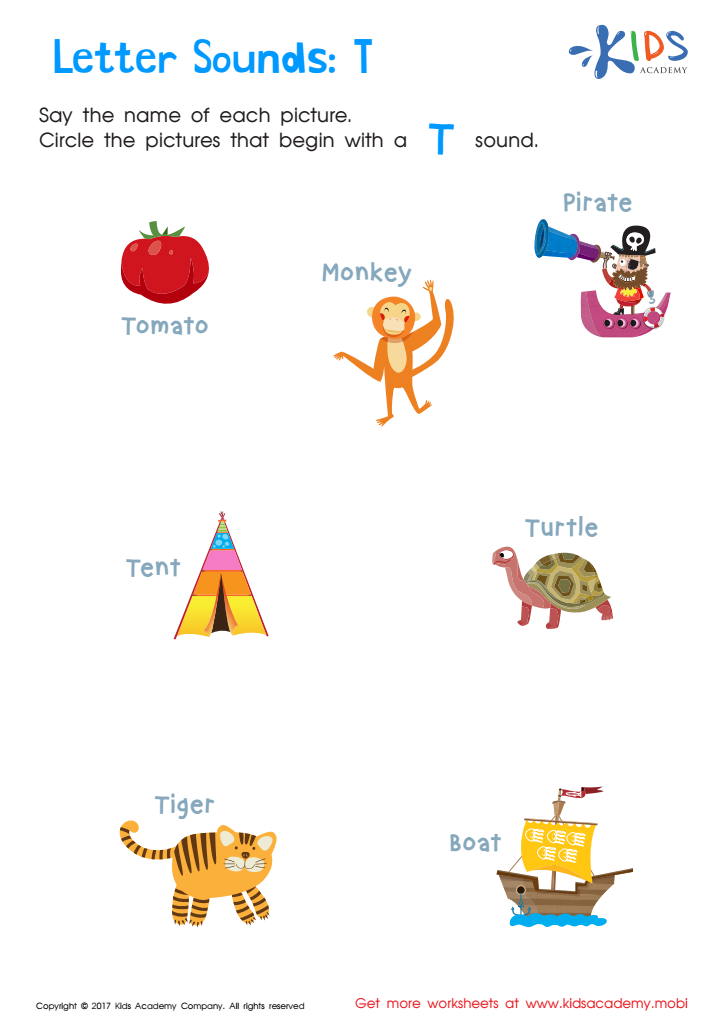

Letter T Sounds Worksheet
Parents and teachers should prioritize letter-sound correlations in preschool phonics as it forms the foundation for reading and spelling skills. Understanding that letters represent specific sounds enables children to decode words, transforming abstract symbols into meaningful text. This early literacy skill is crucial for developing reading fluency and comprehension, which are essential for academic success in all subject areas.
Moreover, mastering letter-sound relationships boosts children’s confidence and fosters a love for reading. It empowers them to explore books independently, opening up worlds of imagination and knowledge. Studies show that early phonics instruction helps prevent future reading difficulties, bridging learning gaps and ensuring that children progress smoothly through their educational journey.
Furthermore, strong letter-sound correlation awareness aids in spelling, allowing children to spell words phonetically, which is an important skill in written communication. It also lays the groundwork for advanced literacy skills, such as phonemic awareness—the ability to manipulate sounds in words, another vital component of proficient reading and writing.
In summary, focusing on letter-sound relationships in preschool phonics equips children with the essential tools for literacy, ensuring they become confident, successful readers and learners. This investment in early education yields lifelong benefits, supporting overall cognitive development and academic achievement.

 Assign to My Students
Assign to My Students





